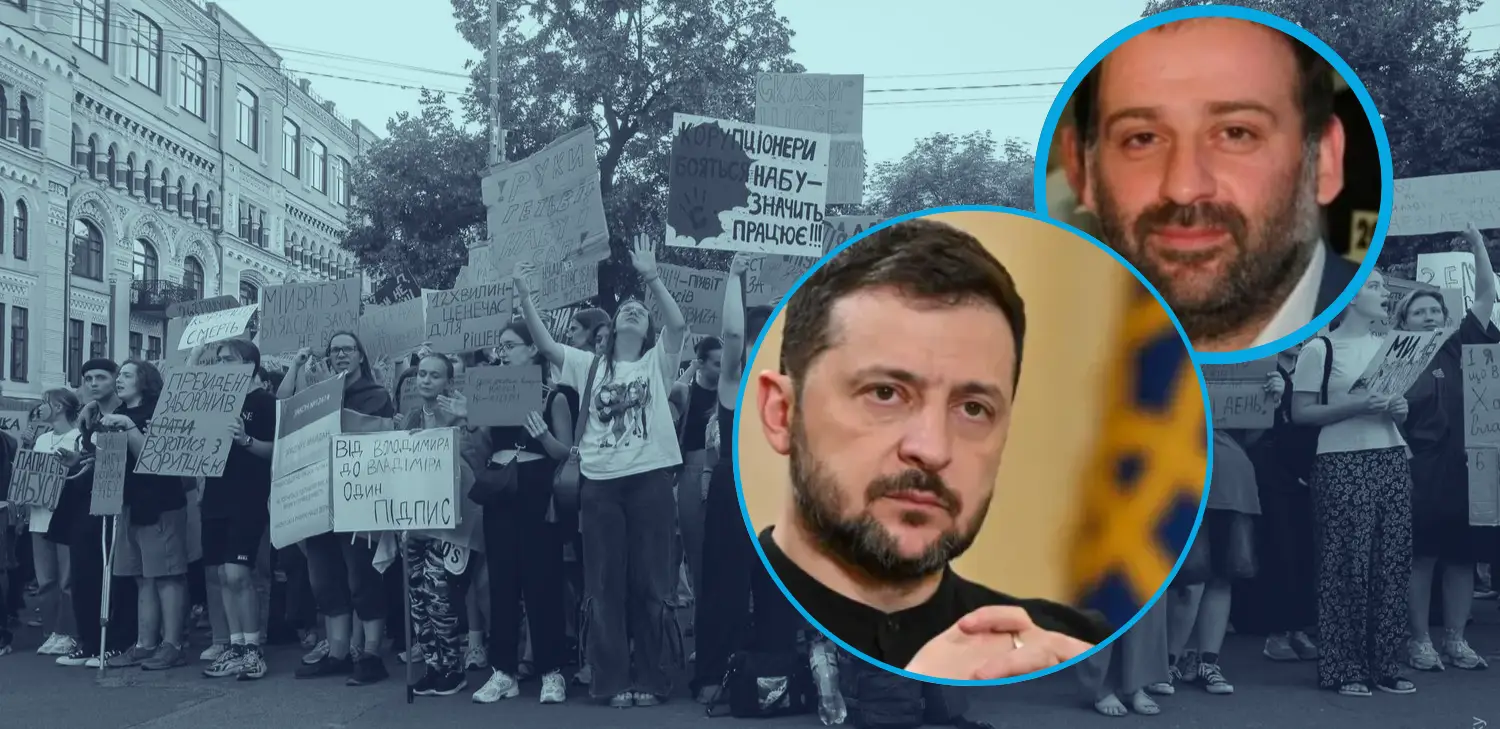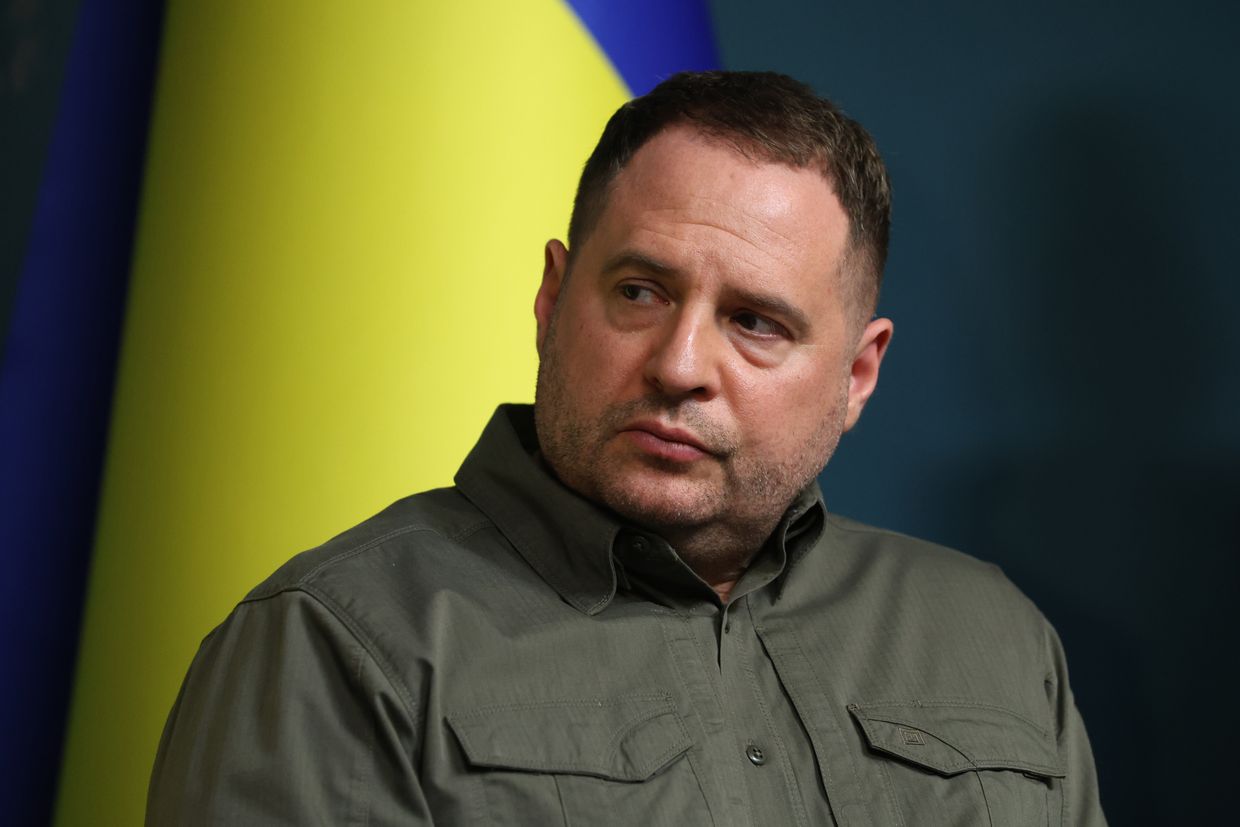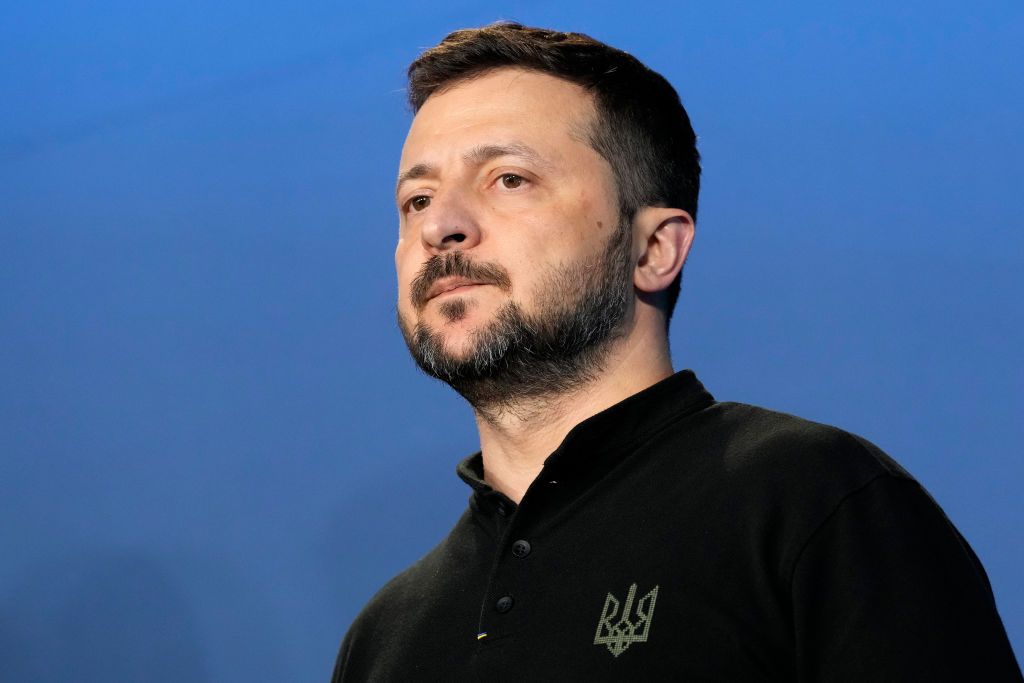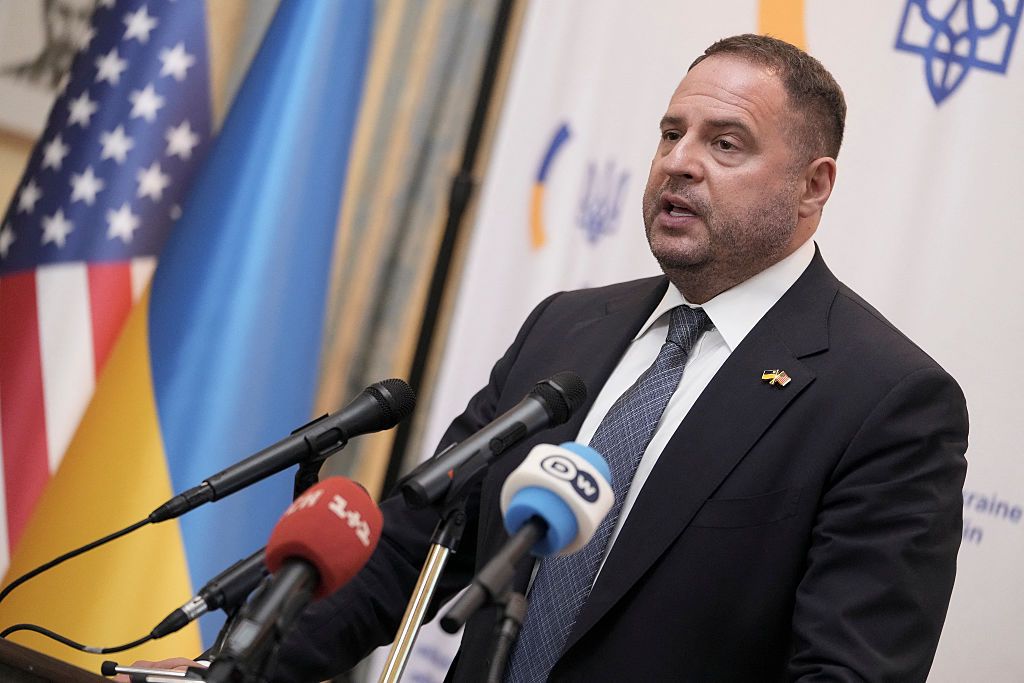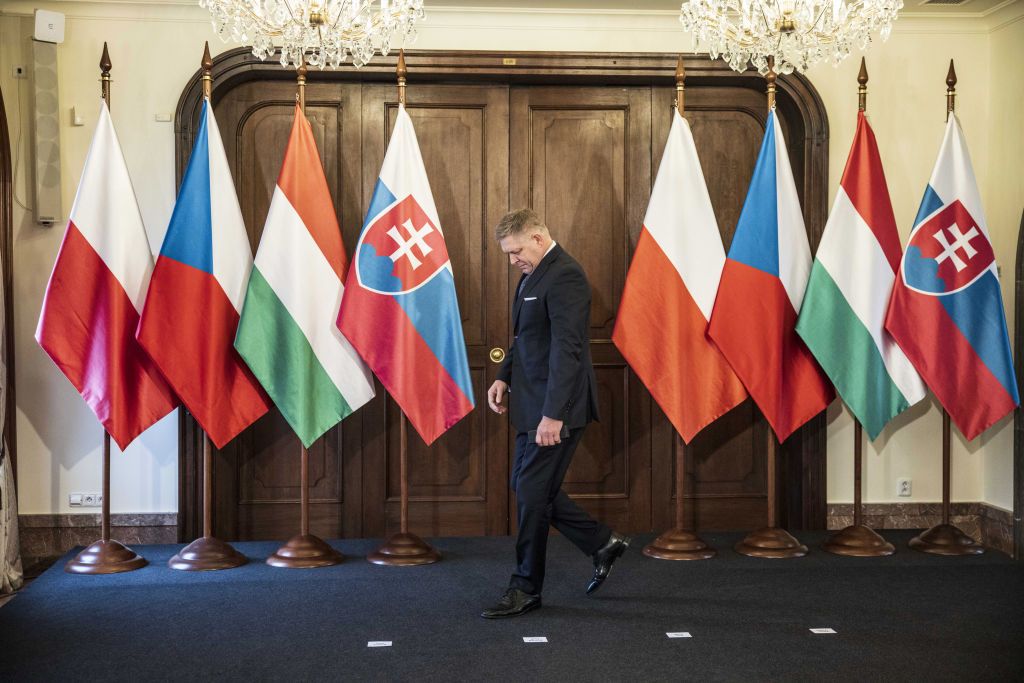Editorial: It’s time for Zelenskyy to choose Ukraine over reelection
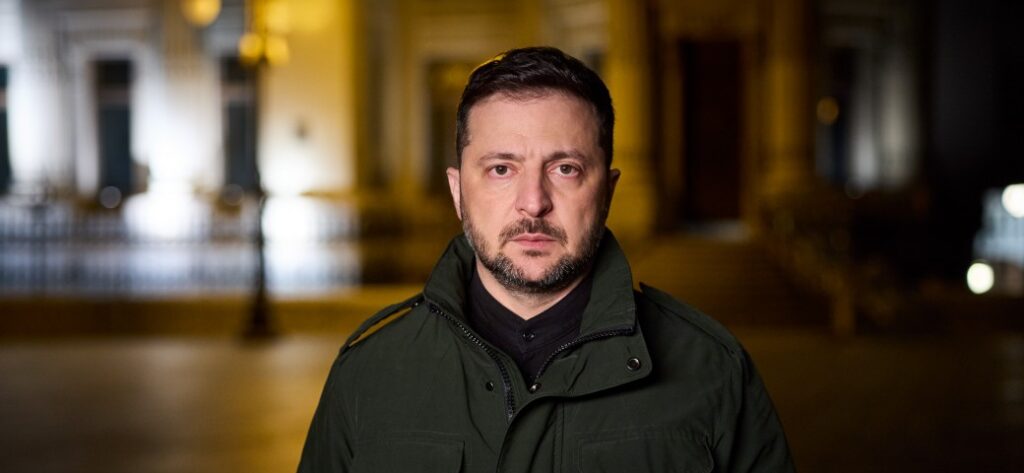
The contract is broken
The Mindich scandal exposed more than $100 million stolen from Ukraine’s nuclear operator Energoatom. It exposed the gap between the country Ukrainians are building and the government Zelenskyy is running.
When Russia invaded, Ukrainians made an unwritten deal with Zelenskyy: Lead us through this war, and we’ll follow.
The contract broke when Zelenskyy crossed a red line: soldiers dying at the front while his friends steal at home.
Protests in July proved Ukraine has evolved. When Zelenskyy’s team tried to subordinate the National Anti-Corruption Bureau (NABU) to protect his inner circle from the Energoatom investigation, teenagers flooded streets all over Ukraine with cardboard signs: “You promised a just state,” and veterans in wheelchairs: “We’re fighting for Ukraine, not for your impunity.”
Ten days later, Zelenskyy capitulated. The protesters won.
This was no anomaly, but a revelation. Ukrainian society, especially the generation inheriting this country, has evolved beyond post-Soviet patronage networks. They’re demanding a new bargain: dignity over loyalty, accountability over connections, and law over personal networks.
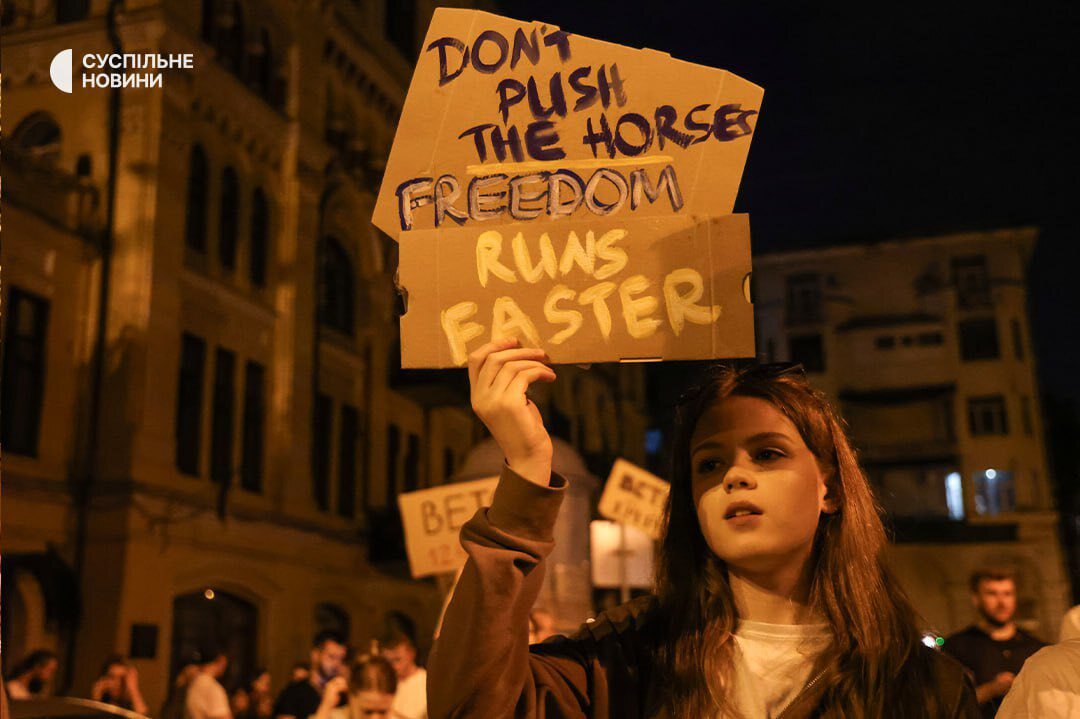
Editorial: Zelenskyy opens a second front—against his own people
The impossible defense
Zelenskyy pretends corruption exists separately from him. But there are only two possibilities:
- He knew his business partner ran a protection racket at Energoatom during wartime—making him complicit in betraying dying soldiers.
- Or he didn’t know—raising questions about basic competence while celebrating birthdays with thieves.
Criminal or incompetent. Pick one.
This matters because Ukraine doesn’t have time to resolve this slowly. The gap between evolved society and stagnant leadership isn’t embarrassing—it's existentially dangerous.
Democracy is the weapon
Ukraine’s greatest asset isn’t its military technology—it’s its democratic legitimacy. That’s what keeps soldiers fighting even when exhausted, civilians enduring blackouts long past the point of patience, and partners sending billions despite their own fatigue.
The demoralization is real. Soldiers rotating from the front ask: “Are we still fighting for a country worth saving?” When the answer feels uncertain, desertion rates climb. Mobilization resistance hardens. The front weakens not because Russia is stronger, but because society loses faith.
Partners are watching. The EU froze $5.5 billion when Zelenskyy attacked NABU. The FBI is coordinating with NABU on the Mindich case. Western governments will push catastrophic "peace" deals the moment democratic legitimacy collapses.
But Ukraine has working institutions—NABU's work proved it. Ukraine also has its civic society—citizens demanding accountability even during war.
What Ukraine lacks is leadership aligned with where society has gone.
That gap could destroy everything.
Political ambitions are the cancer
Each catastrophic decision traces to protecting his political future. Seeking reelection while governing during existential crisis creates two deadly pathologies:
1. The patronage trap. Building a reelection coalition in Ukraine's system requires patronage networks—protect your people, they protect you. Prosecute your inner circle, and the network breaks. Your political base dissolves.
This creates a circle of incompetence: you cannot fire incompetent allies or promote talented critics without breaking the network.
Andriy Yermak epitomizes this. Officially Zelenskyy's chief of staff, unofficially more powerful than vice-president, defense minister, foreign minister, and prime minister combined—yet with no expertise justifying that power, monopolizing decision-making while demonstrating catastrophic incompetence. It was Yermak who orchestrated the attack on NABU when investigators reached Zelenskyy's circle.
He survives because he's indispensable to the patronage network, not because he's competent.
The pattern repeats everywhere: former energy chief Volodymyr Kudrytskyi secured $1.5 billion for Ukrenergo, then got dismissed and prosecuted for criticizing the energy minister. Yet Zelenskyy’s childhood friend-turned-security chief head Ivan Bakanov was only fired after catastrophic losses made costs impossible to ignore in 2022.
Competent officials who might criticize get removed. Incompetent loyalists get protected.
2. The popularity trap. Maintaining poll numbers for reelection requires avoiding unpopular decisions—even when those decisions are necessary for survival.
Mobilization is the most devastating example. Ukraine's troop shortage isn't accidental, but the result of postponing painful decisions. Russian forces advance daily. Exhausted troops fight understaffed. Soldiers die because replacements never arrive.
They're not being sacrificed for strategy, but for polls—hard decisions cannot be popular.
During peacetime, patronage breeds stagnation and poll-watching breeds paralysis. During war, both kill.
Every delayed mobilization decision costs lives at the front. Every protected corrupt official tells soldiers their sacrifice is worthless.
Presidents seeking reelection need: loyal coalitions (patronage), popular support (avoid hard choices), controlled information (attack critics), and no competent rivals.
Every electoral need conflicts with wartime governance needs.
You cannot simultaneously build a reelection machine and govern during an existential crisis.
The choice
Ukrainians are saying: We’ll stand with you until the war ends. But not beyond. Not with your friends. We expect honesty. We expect our sacrifice hasn’t been in vain.
This isn’t rejection; it’s the new social contract.
Two paths:
George Washington stepped down after two terms. Walking away from power cemented his greatness.
Winston Churchill led Britain to victory, then lost in a landslide two months later because voters wanted reform. He spent his final years bitter.
Washington announced the endpoint, built institutions that survived him, and became immortal.
Churchill clung to power until voters rejected him.
Ukraine has evolved. Can Zelenskyy?
The choice is concrete:
Announce publicly he will not seek reelection. This single decision removes every perverse incentive—no need to protect patronage networks, no fear of unpopular mobilization decisions, no reason to attack investigators.
Then immediately:
- Fire Andriy Yermak and dismantle the shadow government in the Office of the President
- Enable full NABU investigation without interference or coordination from the Presidential Office
- Appoint competent professionals over political loyalists, even if they might eclipse him
- Make the unpopular mobilization decisions Ukraine's survival requires
- Acknowledge the patronage system he promised to break has been entrenched instead
This isn't about shame. It's about freedom—his freedom to govern for Ukraine's survival rather than his political survival.
Ukrainians have already made their choice. They'll follow him through this war. But only if he leads the country they're fighting for, not the system they're fighting to leave behind.
